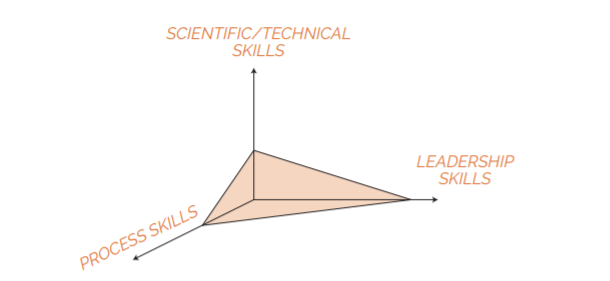In the present day, many companies are forgoing old principles of uniformity and one-size-fits-all conditions for employees and products. One modern counter to this pervasive genericness is the competency model. Where traditional job descriptions dryly state the expected deliverables of a certain project, the competency model focuses on the skills the project calls for rather than its ultimate goal.
Competency models are specifically customized by training departments to hire people that possess certain sets of skill conducive to a task. The Eli Lilly competency model below is one such example designed for vetting potential managers.

Once the skills required for a position are pinpointed, a tailormade training program can be made to assist in achieving “competence” in all of these fields. This goes opposed to old-fashioned training programs which are strictly generic and forced upon people applying for entirely different positions.
Altogether, I find this to be a comforting development in modern management. If I was appointed to a certain job that necessitates a certain set of skills, I’d hope to receive training that imparts those skills rather than some irrelevant and shallow program. Generally, I think a company which nurtures its employees as individuals with unique strengths and weaknesses will turn out better results.
7 Comments
Autumn Coulton · April 27, 2021 at 5:59 am
Nice post Brandon, I agree that the competency model sounds like a good practice in organizations. Training can be long and boring, even more so when it feels like, or it is, irrelevant. I worked as a desk receptionist for a few years at KU, and each semester we all had to go through the same training, even if we already had it previously. While sometimes it was a good refresher, it got old fast because you always hear the same questions each time.
Brandon Kresge · April 27, 2021 at 1:33 pm
Insightful post. I have not heard of the model used until now, but find it interesting. I agree with you on receiving training for those skills. I think it is important to know what each employee is good at, then their weaknesses can be focused on and everyone can help each other improve. I feel like a lot of employers are looking for experience and not too willing to teach someone without experience, but have a strong work ethic and desire to learn.
Vivian Azar · April 27, 2021 at 1:41 pm
I can totally relate to the same thing Autumn said. For GA students/student interns at the SBDC, there’s always a training/orientation that everyone is expected to attend at the beginning of each semester. The orientation is the same thing every time and would be full of generic topics and “ice breakers”, and would last 6 hours. Aside from that, I don’t believe there was ever any sort of training that was specific to the different GA/student positions there
Sean Kinneer · April 27, 2021 at 1:51 pm
Nice post, Brandon. I agree that companies should analyze each of their employees strengths and weaknesses on an individual level. This way employees will be able to perform job duties that are relevant to their skillsets. Any areas the employee may need to improve can be identified and assessed on a case by case basis. A training course and standardize manual could be issued where applicable but that would depend on the company and their mission objectives in the specified area of expertise.
Trisha Badlu · April 27, 2021 at 3:07 pm
I think using competency models would be great for companies to use. Having a specially made training program for new hires is much more helpful than having a very generic training program that probably won’t provide enough of what you need to complete the job as successfully. Using competency models will also help show that the company is actually putting in effort to helping their employees gain the skills necessary for the job instead of expecting to hire only people that already have the desired qualifications.
Griffin Nye · April 27, 2021 at 4:42 pm
Great post, Brandon. I wholeheartedly agree that companies should switch to using these competency models rather than focusing on deliverables. This allows the company to focus more on their employees as human beings rather than the work needing to be performed. Additionally, it will benefit the employees in the long run as they will be able to learn skills required for the project that they may not be the most competent in, allowing them to expand their knowledge. I feel as though way too many companies put too much emphasis on getting work done and not on nurturing the employee’s skill set.
Manogna Pillutla · April 27, 2021 at 4:52 pm
Brief and clean post Brandon. I have a question. I am not sure if it is relevant or not but is there any specific role of project manager in trainings like this if the training is not for the manager? I mean, if these training parameters are to be decided for his/her own team, will project manager have a role in selecting the skills for training?